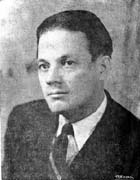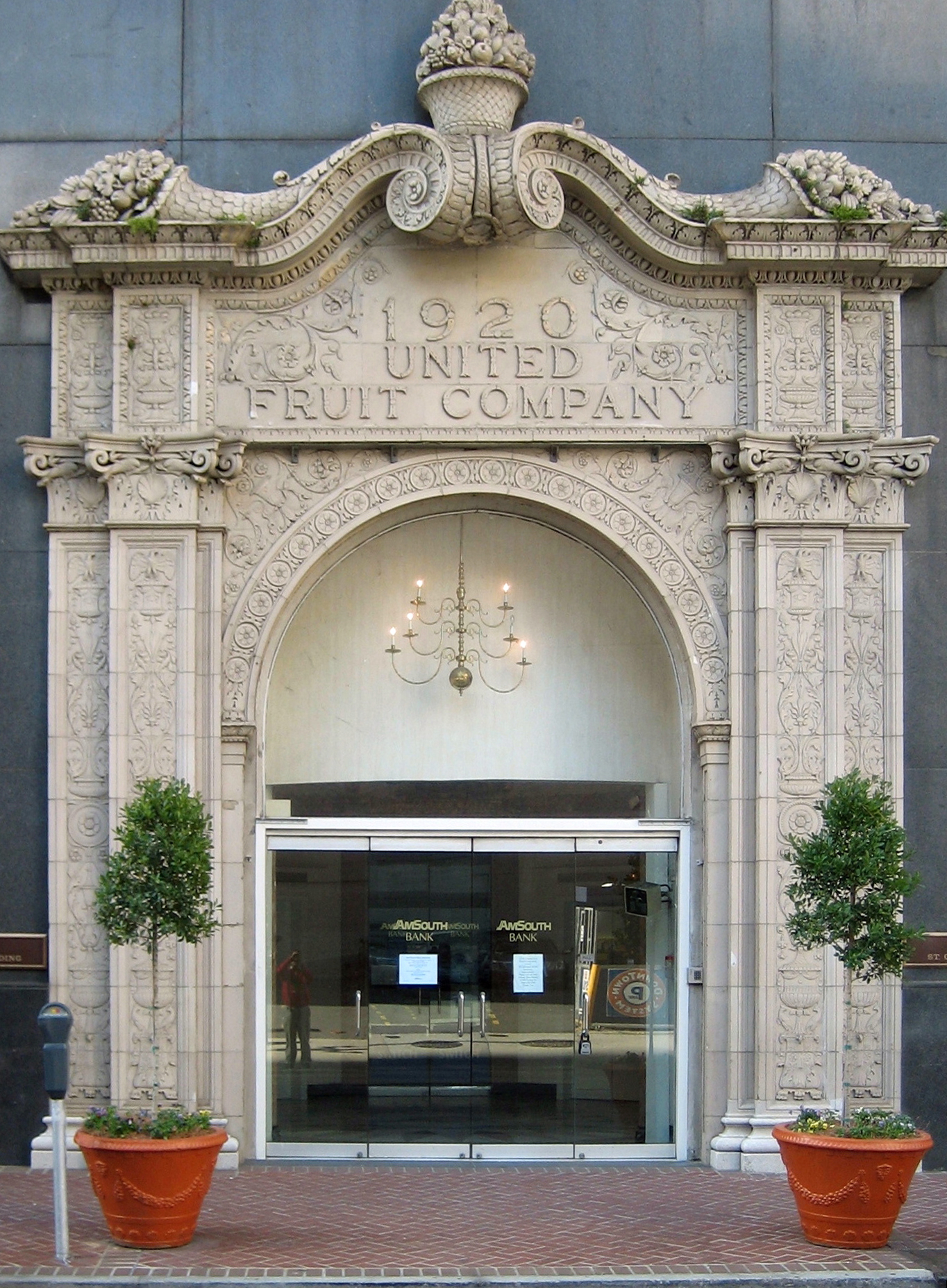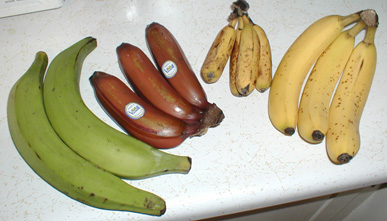|
Trade Unions In Costa Rica
Trade unions in Costa Rica advocate for the rights of workers in Costa Rica. Dating back to the late 1800s, labor unions in the country have been a political force. They remain active in political and social life for many Costa Ricans. History Early organizations During the late 1800s, there were tremendous tensions with workers and managers building the railroads in Costa Rica. While these tensions led to violence against the Jamaican and Chinese workers, they did not lead to the creation of labor unions. Labor unions in Costa Rica began to develop in the 1880s, often being initiated as guilds. During this time, large scale agricultural production developed in Costa Rica, spurred largely by coffee exports. One of the first labor unions in Costa Rica, the Mutual Aid Society, was founded by Catholic priest Francisco Calvo. With the support of Monsignor Bernardo Augusto, the Bishop of San José, who wrote a pastoral letter called "Fair Day for Laborers and Artisans," many Costa ... [...More Info...] [...Related Items...] OR: [Wikipedia] [Google] [Baidu] |
Costa Rica
Costa Rica (, ; ; literally "Rich Coast"), officially the Republic of Costa Rica ( es, República de Costa Rica), is a country in the Central American region of North America, bordered by Nicaragua to the north, the Caribbean Sea to the northeast, Panama to the southeast, the Pacific Ocean to the southwest, and Maritime boundary, maritime border with Ecuador to the south of Cocos Island. It has a population of around five million in a land area of . An estimated 333,980 people live in the capital and largest city, San José, Costa Rica, San José, with around two million people in the surrounding metropolitan area. The sovereign state is a Unitary state, unitary Presidential system, presidential Constitution of Costa Rica, constitutional republic. It has a long-standing and stable democracy and a highly educated workforce. The country spends roughly 6.9% of its budget (2016) on education, compared to a global average of 4.4%. Its economy, once heavily dependent on agricultu ... [...More Info...] [...Related Items...] OR: [Wikipedia] [Google] [Baidu] |
Alfredo González Flores
Alfredo González Flores served as President of Costa Rica from 1914 to 1917. He was unable to complete his presidential mandate following a coup d'état on 27 January 1917, led by Federico Tinoco, his secretary for War and the Navy. González was born in Heredia, Costa Rica on 15 June 1877 as the son of Domingo González Pérez and Elemberta Flores. He graduated from the Costa Rica Grammar School in 1896 and obtained his law degree in 1903. He was called to the Presidency on 8 May 1914 by the Congress, as part of a pact between the two major political parties, the Republican Party and the Duranista party, after none of the three competing parties managed to secure an absolute majority. During his administration, he founded the Normal School of Heredia (1915, of which he also was President of the Board), the National Electricity Cabinet and the International Bank of Costa Rica (now the National Bank of Costa Rica). He also created the Agricultural Credit Meetings, which led t ... [...More Info...] [...Related Items...] OR: [Wikipedia] [Google] [Baidu] |
Teodoro Picado Michalski
Teodoro Picado Michalski (10 January 1900 – 1 June 1960) was the president of Costa Rica from 1944 to 1948. Overview Picado governed Costa Rica immediately after the presidency of Rafael Angel Calderón Guardia and preceded the de facto junta of José Figueres. One of the most erudite presidents to govern Costa Rica, Picado was more moderate and not nearly as inflammatory as either his predecessor or successor. Election as president Before reaching the presidency, don Teodoro, in his capacity as President of the Constitutional Congress, had a very important and active role in approving the social reforms of the government of Rafael Ángel Calderón Guardia (1940–1944). Calderón heavily supported Picado during the 1944 election, through means legal and illegal. The campaign season was particularly ugly by Costa Rican standards, at times turning violent. According to recent, documented studies, by historians Fabrice Lehoucq and Ivan Molina, though there was some minor ... [...More Info...] [...Related Items...] OR: [Wikipedia] [Google] [Baidu] |
Rafael Angel Calderon Guardia
Rafael may refer to: * Rafael (given name) or Raphael, a name of Hebrew origin * Rafael, California * Rafael Advanced Defense Systems, Israeli manufacturer of weapons and military technology * Hurricane Rafael, a 2012 hurricane Fiction * ''Rafael'' (TV series), a Mexican telenovela * ''Rafaël'' (film), a 2018 Dutch film People * Rafael (footballer, born 1978) (Rafael Pires Vieira), Brazilian football striker * Rafael (footballer, born 1979) (Rafael da Silva Santos), Brazilian football defender * Rafael (footballer, born 1980) (Rafael Pereira da Silva), Brazilian football right-back * Rafael (footballer, born March 1982) (Rafael de Andrade Bittencourt Pinheiro), Brazilian football goalkeeper * Rafael (footballer, born August 1982) (Rafael dos Santos Silva), Brazilian football striker * Rafael (footballer, born 1984) (Alberto Rafael da Silva), Brazilian football goalkeeper * Rafael (footballer, born 1986) (Rafael Diego de Souza), Brazilian football centre-back * Rafael (foo ... [...More Info...] [...Related Items...] OR: [Wikipedia] [Google] [Baidu] |
Costa Rican Literature
Costa Rican literature has roots in colonization and is marked by European influences. Because Costa Rica is a young country, its literary tradition is also young. The history of Costa Rican literature dates to the end of the 19th century. Chronology Currently, the most accepted chronology of Costa Rican literature is that proposed by professor Álvaro Quesada Soto. According to Soto, from the first literary publications in Costa Rica at the end of the 19th century, until now, there are five literary periods, which are traditionally called "generations". However, these periods are not "generations" in the traditional literary sense. Thus, the periods of Costa Rican literature are as follows. The Olympus generation (1890–1920) These are the writers within the model of the liberal oligarchic state. The literature of this era is characterized by its being written during a process of formation and consolidation of a national consciousness. *Manuel Argüello Mora *Manuel de Jesús J ... [...More Info...] [...Related Items...] OR: [Wikipedia] [Google] [Baidu] |
Carlos Luis Fallas
Carlos Luis Fallas Sibaja (January 21, 1909 – May 7, 1966), also known as Calufa (from the initial syllables of his first, middle and last name), was a Costa Rican author and communist political activist. Born in Alajuela to a single mother, Fallas completed only the first two years of secondary schooling before moving to Limón, on the Atlantic coast, where he worked in the banana plantations of the United Fruit Company. Finding conditions there intolerable, he returned to Alajuela at the age of 22 and found work as a shoemaker. Fallas became active in the organized labor movement and in the Communist Party of Costa Rica. After a bloody clash between striking workers and the police, a judge sentenced him in 1933 one year of banishment in the Atlantic coast. There, Fallas became the leader of the 15,000-strong banana workers' strike of 1934. In 1942, Fallas was elected city council representative and in 1944 he became a national congressman. He fought in the Costa Rica ... [...More Info...] [...Related Items...] OR: [Wikipedia] [Google] [Baidu] |
United Fruit Company
The United Fruit Company (now Chiquita) was an American multinational corporation that traded in tropical fruit (primarily bananas) grown on Latin American plantations and sold in the United States and Europe. The company was formed in 1899 from the merger of the Boston Fruit Company with Minor C. Keith's banana-trading enterprises. It flourished in the early and mid-20th century, and it came to control vast territories and transportation networks in Central America, the Caribbean coast of Colombia and the West Indies. Although it competed with the Standard Fruit Company (later Dole Food Company) for dominance in the international banana trade, it maintained a virtual monopoly in certain regions, some of which came to be called banana republics – such as Costa Rica, Honduras, and Guatemala. United Fruit had a deep and long-lasting impact on the economic and political development of several Latin American countries. Critics often accused it of exploitative neocolonialism, and ... [...More Info...] [...Related Items...] OR: [Wikipedia] [Google] [Baidu] |
Banana
A banana is an elongated, edible fruit – botanically a berry – produced by several kinds of large herbaceous flowering plants in the genus ''Musa''. In some countries, bananas used for cooking may be called "plantains", distinguishing them from dessert bananas. The fruit is variable in size, color, and firmness, but is usually elongated and curved, with soft flesh rich in starch covered with a rind, which may be green, yellow, red, purple, or brown when ripe. The fruits grow upward in clusters near the top of the plant. Almost all modern edible seedless ( parthenocarp) bananas come from two wild species – ''Musa acuminata'' and ''Musa balbisiana''. The scientific names of most cultivated bananas are ''Musa acuminata'', ''Musa balbisiana'', and ''Musa'' × ''paradisiaca'' for the hybrid ''Musa acuminata'' × ''M. balbisiana'', depending on their genomic constitution. The old scientific name for this hybrid, ''Musa sapientum'', is no longer used. ''Musa ... [...More Info...] [...Related Items...] OR: [Wikipedia] [Google] [Baidu] |
Communist Party Of Costa Rica
The People's Vanguard Party, or Popular Vanguard Party () is a communist party in Costa Rica. PVP was founded in 1931 as the Workers and Farmers Party, but was soon renamed to the Communist Party of Costa Rica (''Partido Comunista de Costa Rica''). From 1931 to 1947, the party published '' Trabajo'' as a communist newspaper. The PVP's current publication is ''El Popular''. History In 1943 the party was renamed as PVP, in order to facilitate its alliance with the Catholic Church and the government, whose reformist policies the party supported. In 1949 the party was banned. Its militants began working under the name 'Partido Acción Socialista Obrera'.Rouquié, Alain/Arnaud, Hélène. ''Les Forces politiques en Amérique centrale''. KARTHALA Editions, 1991. p. 39-40 In the mid-1960s the U.S. State Department estimated the party membership to be approximately 300.Benjamin, Roger W.; Kautsky, John H.. Communism and Economic Development', in The American Political Science Review, ... [...More Info...] [...Related Items...] OR: [Wikipedia] [Google] [Baidu] |
General Strike
A general strike refers to a strike action in which participants cease all economic activity, such as working, to strengthen the bargaining position of a trade union or achieve a common social or political goal. They are organised by large coalitions of political, social, and labour organizations and may also include rallies, marches, boycotts, civil disobedience, non-payment of taxes, and other forms of direct or indirect action. Additionally, general strikes might exclude care workers, such as teachers, doctors, and nurses. Historically, the term general strike has referred primarily to solidarity action, which is a multi-sector strike that is organised by trade unions who strike together in order to force pressure on employers to begin negotiations or offer more favourable terms to the strikers; though not all strikers may have a material interest in the negotiations, they all have a material interest in maintaining and strengthening the collective efficacy of strikes as a ... [...More Info...] [...Related Items...] OR: [Wikipedia] [Google] [Baidu] |
Federico Tinoco Granados
General José Federico Alberto de Jesús Tinoco Granados (21 November 1868 – 7 September 1931) was a politician, soldier, and the Dictator of Costa Rica from 1917 to 1919. Biography Tinoco was born in 1868. On 5 June 1898 in San José, he married María de las Mercedes Elodia Fernández Le Cappellain. The couple had no children. After a career in the army, he was appointed Minister of War in the cabinet of President Alfredo González. On 27 January 1917 he and his brother José Joaquín seized power in a coup d'état and established a repressive military dictatorship that attempted to crush all opposition. Though his government won support from the upper classes because it turned back the austerity measures adopted by President González, and declared war on the German Empire in May 1918, it failed to win the recognition of the United States, where President Woodrow Wilson supported the deposed government. Popular sentiment against Tinoco, which began on 13 June 1919, ... [...More Info...] [...Related Items...] OR: [Wikipedia] [Google] [Baidu] |
.jpg)
.jpg)


